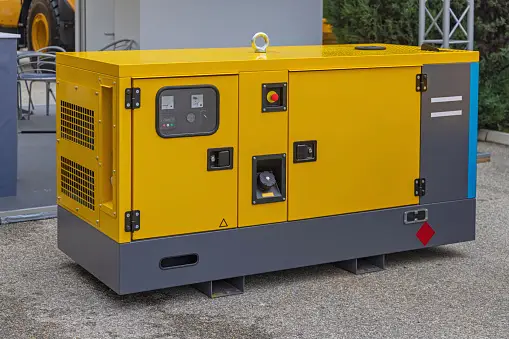Are you tired of feeling the pinch on your wallet every time you receive an exorbitant electricity bill from DEWA? Have you ever considered switching to a generator as an alternative power supply for your home or business?
If so, then this blog post is just what you need! We will be diving into a cost comparison between DEWA’s power supply and generator supply, helping you weigh up the pros and cons and decide which option is best for you. So, sit back, relax, and get ready to save some serious money on your monthly bills!
Introduction
DEWA power supply is an economical and convenient way to get your power needs met. This company provides a variety of services, including residential, commercial, and production power needs.
They also offer a variety of payment options, so you can choose the one that best suits your needs. Additionally, DEWA offers a wide range of customer support services to ensure that you’re getting the most out of their service.
Advantages of DEWA power supply
There are several advantages to using a DEWA power supply as opposed to a generator power supply. One advantage is that DEWA power is more reliable than generator power.
Another advantage is that DEWA power is less expensive than generator power. Additionally, DEWA power is environmentally friendly because it does not produce emissions like generators do.
Cost comparison between DEWA and generator supply
There are many factors to consider when comparing the costs of powering your home or business with a generator vs. using DEWA, the Dubai Electricity and Water Authority.
Cost comparison between DEWA and generator supply can vary depending on fuel prices, maintenance costs, and your power needs.
DEWA is often the cheaper option for those who use a small amount of power, as there are no additional costs for fuel or maintenance.
For those who use more power, however, generators can be more cost-effective since you only pay for the fuel you use. Maintenance costs also tend to be lower for generators than for DEWA service.
The best way to compare costs is to look at your specific needs and calculate the monthly or yearly cost of each option.
In general, though, DEWA is usually the cheaper choice for small businesses and homes, while generators may be more cost-effective for larger businesses with higher power needs.
Factors to consider when making a cost comparison:
There are many factors to consider when making a cost comparison between DEWA power supply and generator supply.
The most important factor is the fuel costs. DEWA power supplies are powered by natural gas, while generators are powered by petrol or diesel.
The cost of natural gas is much cheaper than petrol or diesel, so DEWA power supplies are typically much cheaper to operate than generators.
Other factors to consider include the initial cost of purchase, maintenance costs, and running costs such as electricity and water consumption.
Installation costs
There are many factors to consider when comparing the cost of a DEWA power supply with a generator supply. The cost of the equipment, installation, and operating costs are all important considerations.
The cost of the equipment is the largest upfront investment for either option. DEWA power supplies can range in price from $1,000 to over $10,000.
Generators can be purchased for as little as $500, but the average cost is between $2,500 and $5,000. When comparing prices, it is important to remember that generators require regular maintenance and fuel costs, which can add up over time.
The cost of installation is also an important consideration. DEWA supplies must be installed by a licensed electrician, which can add to the overall cost.
Generator installation is generally simpler and less expensive than a DEWA supply, but it is still important to factor in the cost of permits and any necessary electrical work.
Operating costs are another key factor to consider when comparing power options. DEWA power is supplied by the Dubai Electricity and Water Authority at a set price per kilowatt-hour (kWh).
Generators typically use gasoline or diesel fuel, which can fluctuate in price. In addition, generators must be regularly maintained and serviced, which can add to their operating costs over time.
Maintenance costs
The cost of maintaining a generator is significantly higher than the cost of maintaining a power supply from DEWA.
The main reason for this is that generators require frequent servicing and repairs, while DEWA power supplies are much more reliable. In addition, fuel costs for generators can be very high, especially if the generator is used frequently.
Running costs
There are several factors to consider when comparing the running costs of the DEWA power supply and generator supply. First, the cost of fuel consumption must be considered.
DEWA’s gas prices are significantly lower than those of generators, which use diesel. Second, the cost of maintenance and repair must be considered.
Generators require regular maintenance and repairs, while DEWA power plants have a life expectancy of over 20 years with little to no required maintenance. The cost of emissions must be considered.
Generators produce harmful emissions that can damage the environment, while DEWA power plants have zero emissions. DEWA power supply is cheaper and more environmentally friendly than generator supply.
Pros & Cons for each type of supply
There are many factors to consider when deciding whether to use a DEWA power supply or a generator supply. Below is a list of pros and cons for each type of supply:
DEWA Power Supply:
Pros:
– More cost-effective than generators
– No need for refueling
– Low emissions
– lower noise levels
Cons:
– Unreliable during times of high demand/peak hours
– Can be subject to power outages
Generator Supply:
Pros:
– More reliable than DEWA during times of high demand/peak hours
– Can provide backup power in case of an outage
Cons:
– More expensive than DEWA power supplies
– must be refueled regularly for continued operation
– High emissions
– Noisy
Power Outage Issues with Each Supply Option
According to a report by the Emirates Institute for Consumer Affairs, during the second half of 2017, 19% of Dubai households experienced at least one power outage lasting more than two hours.
In addition, 13% of households had frequent power outages lasting between five minutes and two hours.
The most common causes of power outages in Dubai are due to technical faults, shortages in supply from DEWA, or maintenance work.
However, power outages can also be caused by extreme weather conditions such as dust storms or high winds.
DEWA is the main provider of electricity in Dubai and is responsible for maintaining the city’s power grid.
DEWA has its own emergency response team that works to restore power as quickly as possible when outages occur.
However, because DEWA is reliant on multiple suppliers for its electricity, it can sometimes take longer for power to be restored following an outage.
Generators are often used as backup power sources in Dubai. However, generators can be expensive to operate and maintain, and they can also cause environmental pollution.
In addition, using a generator during a power outage may not be safe if proper precautions are not taken.
Backup Options for Power Outages
Assuming you have a proper backup plan in place for power outages, the cost comparison between the DEWA power supply and generator supply can be quite illuminating.
For businesses, the biggest concern is usually lost productivity due to power outages. This can be costly, not only in terms of the actual revenue lost during that time but also in terms of the indirect costs associated with downtime (e.g., spoiled inventory, missed deadlines, etc.).
For households, the cost of a power outage is often measured in terms of inconvenience and discomfort.
While this is certainly not an insignificant cost, it is important to remember that there are also potential health and safety risks associated with extended power outages (e.g., food spoilage, lack of lighting and ventilation, increased risk of fires, and carbon monoxide poisoning).
Here is a quick rundown of the average cost of some common backup options for power outages:
-Diesel generators: $0.50-$1.00 per kilowatt-hour (kWh)
-Natural gas generators: $0.20-$0.70 per kWh
-Battery backups: $200-$1000 upfront cost plus $0.10-$0.50 per kWh for replacement batteries
-Fuel cells: $400-$800 upfront cost plus $0.30-$0.60 per kWh for fuel
-Solar panels: $3,000-$7,000 upfront cost plus $0.10-$0.50 per kWh
The exact cost of your chosen power outage backup option will depend on the size and type of equipment used, as well as the local tariff for energy costs.
It is important to research carefully and consider all your options before investing in a backup plan for your home or business.
Conclusion
In conclusion, DEWA power supply is more cost-effective and efficient than generator power supply. It also provides the added benefit of being environment-friendly since there are no gas emissions associated with it.
Therefore, for anyone looking to reduce their energy costs and ensure a reliable power source for their home or business, switching to a DEWA power supply would be an ideal choice.


